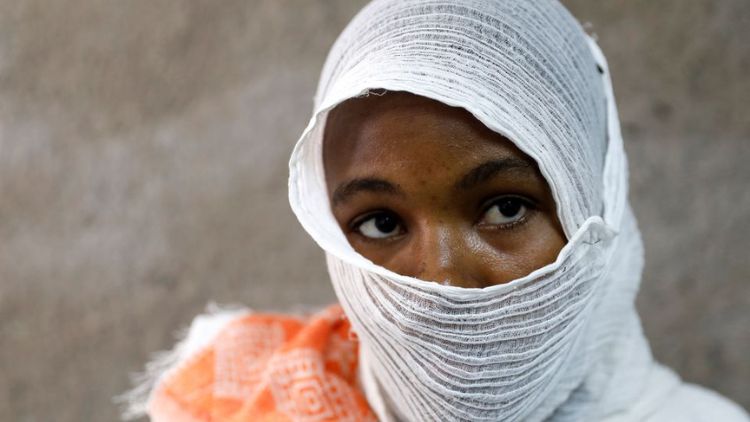Tigray: Famine is forcing women and girls into sex work


Reports have shown the depths of the desperation people experience, as the UN’s World Food Programme warned on Friday that in Tigray, a war-torn region of Ethiopia, nearly half of the population is suffering from a chronic lack of food and conditions “are set to worsen as people enter peak hunger season.”
Read: Over 1400 women raped in Tigray
According to a Guardian article citing “reports from inside Tigray,” famine in the besieged province of Tigray is pushing people to ever-more desperate measures as a result of the government’s deliberate blocking and seizure of remittances, on which millions of people depend.
The article further claims that many women and girls are being forced to engage in sex work in order to survive.
In an interview with the Guardian, a 16-year-old girl described how the misery of her parents and siblings prompted her to sell her body on the streets.
“Relatives abroad had been sending us money through smugglers. But it is tough to find remittance smugglers these days. Those we knew are no longer operating. We sold every property we had. There is nothing to eat at home. So, I went to the street to sell my body. What option do I have?”
People had been mostly dependent on money from relatives and friends overseas to survive in the absence of aid and banking, but the Tigrayan authorities have placed restrictions on remittances as well. Moreover, immediate action against those bringing money in illegally has risen at checkpoints.
Another interviewee, a 27-year-old master’s-degreed woman who had a stable job, a good salary, and plans to get a PhD before the conflict, revealed how she was forced to sell her body when the hunger killed her father.
She does, in fact, have money in her bank account, which may come as a shock. The banks in Tigray, however, are now fully cashless and have ceased issuing currency as a result of being cut off from the central federal system.
Since last year, the Ethiopian government has cut off all banking services and communications to the state, denying 6 million individuals access to their own money.
“I watched my father die from malnourishment. He died in my hands. My mother is all bones. The warehouses are full of aid enough to feed the city. Fuel is not required to distribute aid within Mekelle. But people are dying unable to receive the aid they are entitled to. After I lost my father to starvation, I needed to do something to save my own life and my mother’s. Hunger does not give you time. I tried begging. But it does not work as there are many beggars. I became a prostitute.”
The WFP’s most recent study, which covered the months of November 2021 and June 2022, found that 89% of Tigray’s six million inhabitants experience food insecurity or inconsistent access to food.
Recently, in an emotional appeal, Tedros Adhanom Ghebreyesus, the director-general of the World Health Organization, reportedly referred to the situation in Tigray as the “worst humanitarian crisis in the world” and questioned why it was not receiving the same attention as the unrest in Ukraine.
At a virtual media briefing on Wednesday, Tedros, a Tigray native, remarked, “Maybe the reason is the colour of the skin of the people.”
The conflict in northern Ethiopia reportedly started when 2019 Nobel Peace Prize winner Abiy Ahmad Ali deployed troops into Tigray to oust the TPLF on the grounds that the rebels had attacked federal army bases.
It was the culmination of months of tension between the government and the TPLF, which had dominated Ethiopian politics for thirty years before Abiy’s installation as president in 2018.
